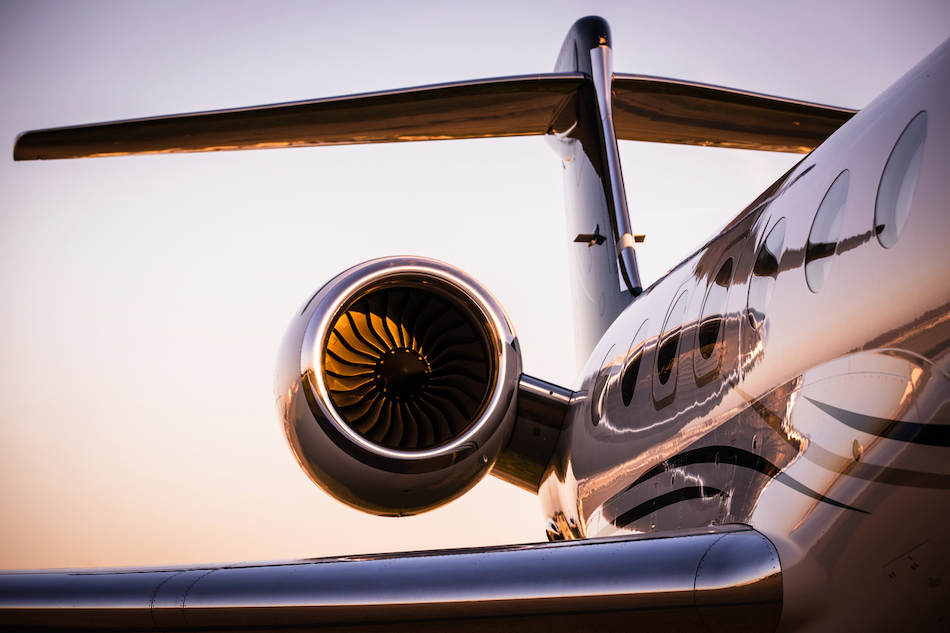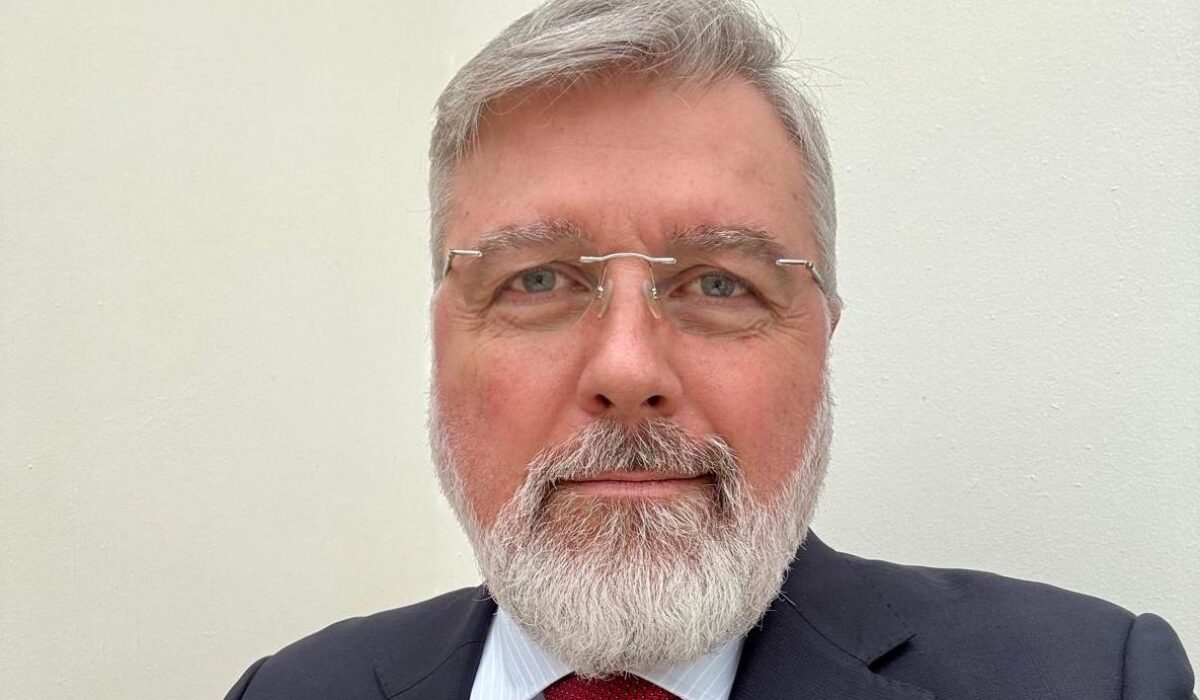Safety with Service: The Isle of Man Aircraft Registry’s Next Chapter
The Isle of Man Aircraft Registry has built a global reputation for combining Safety with Service. As it nears its twentieth year, Director Simon Williams shares how the Registry is driving digital innovation, staying agile in a shifting geopolitical climate, and preparing for the next chapter of growth in international aviation.
Dominic Hale: The Isle of Man Aircraft Registry introduced Two-Factor Authentication for its online services in recent years. How has this enhanced both the security and the overall user experience for clients?
Simon Williams: Recent high-profile cyber-attacks around the world have demonstrated the vital need for all service providers to proactively protect client data.
The Isle of Man Aircraft Registry (IOMAR) incorporated Two-Factor Authentication (2fA) to our online customer portal in September 2022. The roll out appears to have gone well – the key being to provide clear, readily understood instructions and guidance to our users. From a user experience perspective, it ultimately builds trust and confidence amongst our clients. Knowing that their data and transactions are protected by robust security measures, reassures users and encourages continued engagement with the portal. Overall, the adoption of 2fA reflects the Registry’s commitment to safeguarding client information and aligns with best practice in digital security, which is increasingly important in today’s cyber landscape.
Since 2015 we have only issued aircraft certificates and documents in digital format that are downloaded from our customer services portal. In November 2022, we introduced digitally verified signatures, as a further layer of assurance of the authenticity and security of IOMAR issued certificates and documents.

Dominic Hale: The Registry has acted decisively in removing aircraft to comply with international sanctions. In such a dynamic geopolitical climate, how crucial is it for registries to remain agile and visibly compliant?
Simon Williams: The IOMAR proactively and robustly responds in a timely, proportionate and measured fashion to international sanctions. We are duty bound to act in accordance with sanctions, and under such circumstances an aircraft may be de-registered following the required legal and regulatory processes.
We must remain agile, responsive, appropriately vigilant and clearly compliant; I think this applies to everyone frankly and not just us. Of vital importance is that we act properly in a balanced and measured fashion in accordance with our legal framework and established processes, which afford clients appropriate recourse and representations
Our qualified ownership criteria for aircraft registration based on EEA and Commonwealth countries have historically served us well. We have incrementally broadened this in recent years, by adding: USA; Japan; Hong Kong; and China to the list. We are now assessing options to evolve this further, considering risk ratings such as those provided by the Financial Action Task Force (FATF) Anti-Money Laundering and Countering the Financing of Terrorism (AML/CFT) risk ratings. This may have the added benefit of opening new opportunities in low-risk countries that are not currently listed.
“Rigorous safety standards and credible oversight don’t need to compromise high-quality service — they are entirely compatible.”
Dominic Hale: Balancing rigorous safety oversight with exceptional client service is a hallmark of the Registry. How do you maintain this balance in practice, and how does it help to differentiate the Isle of Man on the global stage?
Simon Williams: We feel that rigorous safety standards and credible regulatory oversight do not need to compromise high-quality service standards – quite the contrary, they are very compatible. Key to this is working within the framework of our regulatory enforcement policy. We have a responsibility to those that we regulate to be clear about when, why and how we will deliver our oversight. This starts with collaboration and advice, giving guidance and encouragement, and then of course has the potential, where necessary, to step through more formal measures as appropriate. Customer service excellence is of paramount importance; we take great pride in providing tailored solutions for industry and constantly strive to enhance our customer service proposition, all encapsulated by our motto: Safety with Service.
Dominic Hale: With the new Civil Aviation Act and developments in fleet approvals underway, what can operators expect to see in terms of regulatory evolution and operational opportunities in the coming months?
Simon Williams: The Isle of Man Civil Aviation Administration (IOM CAA), of which the IOMAR is an integral part, has made significant progress in updating the Island’s aviation safety legislation to ensure that it maintains international compliance, is proportionate, contemporary and easy to understand. In 2018 we expanded our rulemaking powers to enable the Island to make its own aviation legislation (independent of the UK) through ‘Tynwald Court’ – the parliament of the Isle of Man, which is of Norse origin, over 1,000 years old, and is claimed to be the oldest parliament in the world with an unbroken existence.
In recent years we have published updated legislation covering diverse aviation subjects: aircraft registration and marking; noise certification; occurrence reporting; dangerous goods; rules of the air; the Cape Town Convention; Carbon Offsetting and Reduction Scheme for International Aviation (CORSIA); ramp inspections; small, unmanned aircraft; aerodromes; air traffic services, and aviation security.
“We must remain agile, responsive, and visibly compliant; this applies to everyone, not just us.”
In 2020, we issued new legislation giving enhanced legal clarity to owners and operators of Isle of Man registered aircraft about acceptable/unacceptable valuable consideration and remuneration for private and corporate flights. We also extended our offering to include ‘aerial work’, otherwise known as ‘specialised services’, which incorporates activities such as aerial survey and filming. This has proved to be an important and successful piece of work that continues to be well received by industry.
In the coming year we expect to publish a new ‘Registration of Mortgages Order’, which will replace and update our processes and the protections available to mortgagees. We are also finalising a ‘Miscellaneous Amendments Order’ that ensures that the legislation published since 2018 remains correct and up to date.
The final major steps in completing the programme will be the issuance of new legislation covering aircraft airworthiness and flight operations.
A major part of our evolution has been in our regulatory management system which, although hidden from the direct sight of our clients, has had a significant beneficial effect on our standards and processes. We have transformed our internal policies, procedures and processes to ensure that we continue to meet (and where appropriate surpass) the expectations of the International Civil Aviation Organisation (ICAO). A major part of that is our obligation to maintain our regulatory data in the ICAO Universal Safety Oversight Audit Programme Online Framework, comprising compliance statements for over 12,000 Standards and Recommend Practices and 790 Protocol Questions.
Dominic Hale: Sustainability continues to rise up the agenda in aviation. What steps is the Registry taking to support greener practices, and how do you see its role evolving in this area?
Simon Williams: Business aviation should be recognised for working diligently towards decarbonisation, including being an early adopter of new technologies that reduce aviation’s overall environmental impact.
As an aviation safety regulator, we have a role to register and regulate the safety of aircraft using new ‘green’ technologies, such as electric or hydrogen powered aeroplanes and helicopters. We fully expect such aircraft to be registered in the Isle of Man in due course, alongside existing traditional jet or turboprop aircraft.
We have also implemented the monitoring, reporting and verification elements of ICAO’s CORSIA and intend to mirror the UK offsetting requirements of CORSIA in so far as possible.
Dominic Hale: ‘Safety with Service’ remains central to the Registry’s ethos. How does this guiding principle influence your regulatory approach, engagement with clients, and internal culture?
Simon Williams: As an international registry of private and corporate aircraft we have the honour to work with a wide variety of nationalities and cultures. The common approach taken for clients of all cultures is to act with respect and empathy. We strongly believe that our safety regulatory role can be delivered without any compromise to customer service excellence and the provision of tailored solutions, whilst behaving respectfully and with empathy to our clients’ needs and challenges.
Our aim is for the dialogue with clients to result in a shared broad perspective on the main risks to safety performance across the entity. The key thing is to have a constructive, two-way discussion about the business context, safety risks and the desired outcomes.
There is a strong ‘Just Culture’ within the IOMAR. We have been together as a team for a long time now. A continuous improvement programme has been in place for over a decade. We are open, supportive, challenge each other constructively and are focussed on delivering to the best of our abilities. It’s a great place to work and there is a genuine sense of pride in what we do.
Dominic Hale: The Registry is approaching two decades of operation. Looking ahead, what are your strategic priorities for the next phase of growth and international engagement?
Simon Williams: Our number one priority is to maintain, and where possible, continually improve on our commitment to Safety with Service and to cement our position as the aircraft registry of choice for private and corporate aircraft operations. We believe we are best placed to do this through:
- Exceptional customer service and a commitment to excellence;
- Competitive pricing without compromise on quality;
- Safeguarding clients financial interests through mortgage registration and the Cape Town Convention;
- Global recognition of our aviation standards under the Chicago Convention;
- Tailored solutions specifically designed for the unique requirements of private, corporate and aerial work operations, plus transitional aircraft.
Dominic Hale: Digitalisation is transforming aviation administration. Beyond Two-Factor Authentication, are there any digital innovations or service enhancements in the pipeline that stakeholders should be aware of?
Simon Williams: The IOMAR is committed to appropriately enhancing its online services to continuously improve client experience. In recent years, we have introduced an online interface which enables clients to interact with the registry team on MEL and special operating approval applications. We have a longer term desire to introduce online applications which would make it even quicker and more efficient for clients to apply for certain services.

